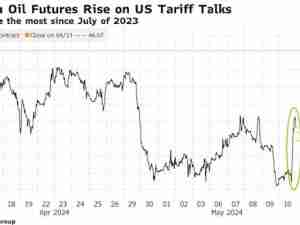Tory Guerrillas Resist Hard Brexit to Back 48% Who Wanted In
By: Alex Morales | Oct 27 2016 at 06:42 AM | International Trade
The biggest defense of the interests of the 48 percent of Britons who voted to stay in the European Union in June is being mounted from within Prime Minister Theresa May’s Conservative Party, even as she pushes to uphold the majority “Leave” verdict.
While the opposition Labour Party’s Brexit spokesman, Keir Starmer, has emerged as a key moderating figure, the stance of pro-European Conservatives may matter more. That’s because May has a working majority of only 16 in the 650-strong House of Commons, meaning just nine rebel members of Parliament could overturn a vote. Among the most prominent voices are former Education Secretary Nicky Morgan, ex-Business Minister Anna Soubry and onetime Attorney General Dominic Grieve.
Their disquiet stems from the Tory party conference earlier this month, during which May signaled she’ll prioritize immigration controls over continued membership of the EU single market, with its free trade in goods and services among 500 million people—a “hard Brexit.” That week, the pound posted its biggest decline against the euro since 2009.
“There’s a significant number of people in the Conservative parliamentary party who are very alarmed by the sudden talk of hard Brexit,” said Morgan, who was fired from the cabinet when May became premier. Support among rank-and-file Tory lawmakers for a softer Brexit is “enough to threaten the majority—and more,” she said in an interview.
Other Tories to put their heads above the parapet include former Chancellor of the Exchequer Ken Clarke, onetime Transport Minister Claire Perry and ex-Policing Minister Nick Herbert.
‘Starting to Grow’
“I’m more than happy to be the voice of the 48 percent—which I believe is starting to grow,” Soubry said in an interview.
While the “Remainers” aren’t seeking to avert Brexit, they’re pushing not only for a deal on leaving the EU that retains the fullest possible trade access, but also for one that Parliament can scrutinize.
They’re taking their cue, to an extent, from the way Tory opponents of the EU eventually forced May’s predecessor, David Cameron, into holding the referendum in June.
Guerrilla War
The moderates “have seen what first of all a handful of Euroskeptics, which then grew to more and more MPs, did to the government on the other side of the debate over the years,” said Tim Bale, professor of politics at Queen Mary University of London. “I don’t think some of them have got much compunction in fighting the same sort of guerrilla war.”
May argues that the referendum was a vote to end the unfettered influx of workers from the EU, telling the party conference that “we are not leaving the European Union only to give up control of immigration all over again.”
That’s a message the bloc’s leaders say is incompatible with Britain remaining in the single market. German Chancellor Angela Merkel says the U.K. can’t “cherry-pick” the best bits of EU membership while shedding freedom of movement, a core principle. Moderates who fear economic damage are rattled.
The question on the ballot paper was whether to “Remain” or “Leave,” and “there’s a very big danger of extrapolating a mandate on other issues which you cannot and should not do,” said Soubry. “If we stick rigidly to abandoning the free movement of labor, we will lose the single market,” she said, describing that as “a recipe for disaster.”
Grieve is seeking a “proper debate” and is pushing for more parliamentary scrutiny of the government’s strategy before May invokes Article 50 of the EU’s Lisbon Treaty, marking the formal start of divorce discussions. She says she’ll do so by the end of March.
General Debates
Recognizing the demand for Parliament to have more of a say, May pledged on Monday that there will be a series of “general debates” on Brexit, while stopping short of promising any votes. The leader of the House of Commons, David Lidington, announced on Thursday that the first debate—on workers’ rights—will be held on Nov. 7.
Brexit Minister David Jones told lawmakers on Wednesday that an eventual new treaty with the EU will be presented to Parliament for debate, again without mentioning possible votes.
“I would expect there to be a vote on the triggering of Article 50,” Grieve, who as Cameron’s attorney general provided legal advice to the government, said in an interview. “Single-market participation is of such importance to the country that it’s what we should be aiming to retain.”
Herbert is working with the former leaders of the Labour and Liberal Democrat parties, Ed Miliband and Nick Clegg, to organize a Commons debate aimed at forcing a vote on Article 50.
With widespread acceptance that the referendum result can’t be reversed, the focus for the moderates is to ensure that, as well as ensuring the freest trade, the EU deal doesn’t put the stoppers on the immigration needed to fill low-paid jobs in agriculture, tourism and health care, as well as the expertise from abroad required in universities, banks and high-tech companies.
As well as continued immigration in key sectors, “clearly we need some form of access to the single market, and things like passporting for financial-services firms are hugely important,” said Morgan. “If we start on the basis that hard Brexit is the only option on the table, I really don’t think that that’s the way to get the best deal for Britain.”








